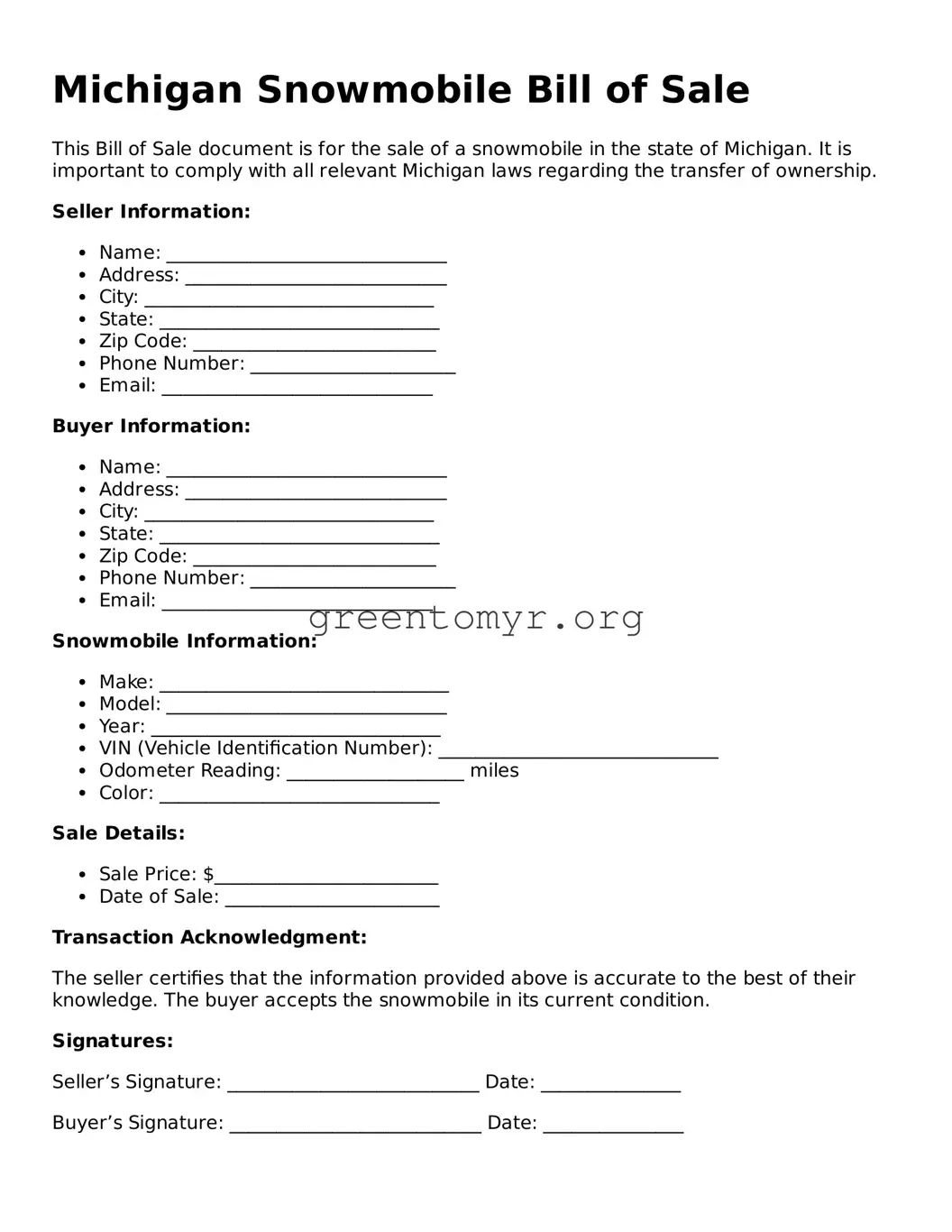Filling out the Michigan Snowmobile Bill of Sale form can be a straightforward process, but mistakes are common. One frequent error is failing to provide complete buyer and seller information. Both parties must be identified accurately to ensure a valid transaction. Missing names, addresses, or contact numbers can lead to complications later.
Another common mistake involves incorrect or missing vehicle identification numbers (VIN). The VIN is crucial for identifying the snowmobile accurately. Omitting this number or providing an incorrect one can result in ownership disputes or registration issues.
People also often overlook the date of the sale. This date serves as a reference point for the transaction and is essential for tax purposes as well. If it's left blank or filled in incorrectly, it may cause questions during the registration process.
Many individuals fail to note the purchase price of the snowmobile. This figure is necessary not only for the transaction record but also for calculating taxes due. Leaving the purchase price blank can lead to confusion and potential penalties.
Not checking for signatures can lead to significant issues. Both the buyer and seller must sign the form to complete the transaction. A missing signature may invalidate the bill of sale, leaving both parties exposed to legal risks.
Another mistake people make is not specifying the condition of the snowmobile. Including details about the vehicle's condition not only protects both parties but also provides clarity in case of any disputes after the sale has been completed. Buyers appreciate understanding the vehicle's history and any potential issues.
It's also common to have discrepancies between the description of the snowmobile and the VIN provided. Any inconsistencies can cause confusion and may complicate the registration process. Double-check to ensure that all information aligns correctly.
Some individuals neglect to keep a copy of the signed bill of sale for their records. Retaining a copy is essential in case of future disputes or if proof of ownership is needed. Not having this documentation can create significant challenges later.
People sometimes fail to complete all sections of the form. Each section is important and serves a purpose. Leaving sections blank can lead to misunderstandings, particularly regarding warranties or statements about any existing liens on the snowmobile.
Finally, not verifying the form's requirements with Michigan's Department of Natural Resources can lead to confusion. Laws and regulations can change, and it's vital to ensure that the form is completed according to the most current standards to avoid issues in the future.
